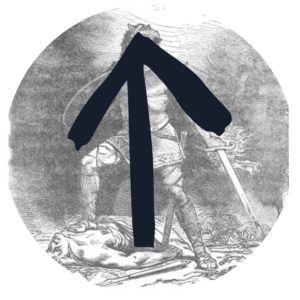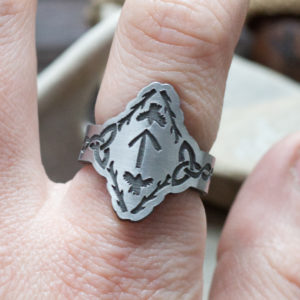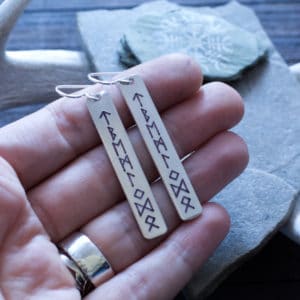Tyr is also known as Ziu in Old High German and derives possibly from an older deity, the reconstructed Tiwaz, meaning ‘the God’ (Jan de Vries, 1962; Altnordisches Etymologisches Wörterbuch (1977).
Roman historian Tacitus said in ‘Germania’ that Mars is the God they – the Germanic tribes – worship among 2 other important deities.
‘Among the gods Mercury is the one they principally worship. They regard it as a religious duty to sacrifice to him, on fixed days, human as well as other sacrificial victims. Hercules and Mars they appease by animal offerings of the permitted kind. Part of the Suebi sacrifice to Isis as well.’
What is Tyr the god of?
The deities in question here would be Wotan, Donar (Thor) and Tiwaz. (Anthony Birley, 1999). Scholar Herrmann Reichert proposed that Tiwaz was among the highest of deities in an older Germanic Pantheon. At first, Woutan (or Odin) may have co-existed with Tiwaz but sociocultural and political factors may have contributed to Odin replacing Tiwaz, becoming the highest deity of the (Norse)-Germanic Pantheon. (Herrmann Reichert, 2002).

Is Tyr a good god?
Tyr and Fenrir In the Eddas, Tyr is most associated with battling the wolf Fenrir where he will lose one of his arms. At the event of Ragnarök, he will be devoured by Garmr, a wolfish-dog that guards the portals to Underworld where Hel resides.
In the Sigrdrífumál, a magical charm to invoke the powers and forces of Tyr is used:
‘You must know victory-runes
if you want to know victory. Carve them
into your sword’s hilt, on the blade guards
and the blades, invoking Tyr’s name twice.’
(Jeramy Dodds, 2014).
-
 Raven & Rune Ring – Custom Rune$53.00 – $119.00
Raven & Rune Ring – Custom Rune$53.00 – $119.00 -
 Rune Aettir Earrings – Freyja – Heimdall – Tyr$38.00 – $106.00
Rune Aettir Earrings – Freyja – Heimdall – Tyr$38.00 – $106.00

